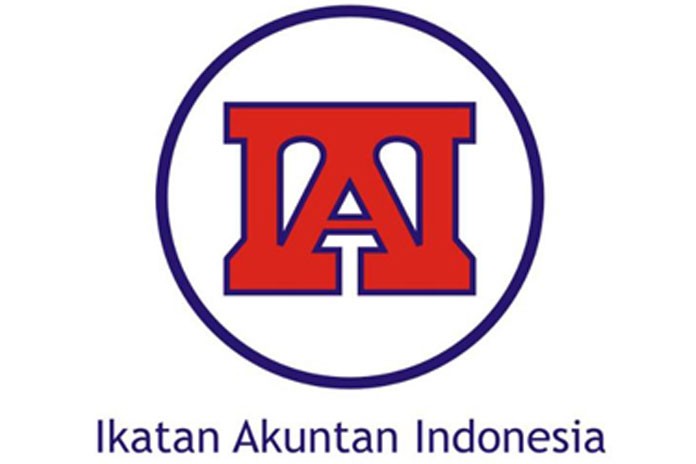KETERAMPILAN DAN ATRIBUT YANG DIBUTUHKAN OLEH LULUSAN AKUNTANSI UNTUK SUKSES BERKARIR: PENGUJIAN SENJANGAN PERSEPSI MAHASISWA DAN PEMBERI KERJA
Abstract
Abstract
Many studies have found discontent from practitioners to the knowledge and skills possessed by accounting graduates, especially graduates who have recently entered the workforce. Therefore, students need to know the various types of skills required and compiled. Once students recognize the different types of skills / attributes, it is important to know how they are in the assessment of these skills / attributes as a priority that they must prepare. No less important is something that employers need about graduates of accounting. This study aims to examine the perceptions of students and employers on various types of skills and attributes and test the possibility of perception and expectation gap between them. In addition, this study also conducts rankings to summarize what types of skills / attributes are priorities in order for students to be able to engage in work and employers satisfied with the knowledge and skills brought by the prospective workers. The respondents of this research are the last year accounting students from the State University in Padang City. Hypothesis testing is done with one-tailed paired t-test while the ranking is based on the mean score of each skill / attribute by considering the consensus measured by coefficien of variation (CV). The results show that students perceive technical skills as more important than overall generic skills although individually, personal and interpersonal skills are considered more important than technical skills. The study also found that overall, employers also considered technical skills to be more important. Then, there is a significant difference between the perceptions of students and employers about the skills and attributes required by accounting alumni to succeed in the world of work
.
Keywords: Skills, attributes, students, employers, perceptions, slack.
Abstrak
Banyak riset menemukan adanya ketidakpuasan dari praktisi terhadap pengetahuan dan keterampilan yang dimiliki oleh lulusan akuntansi, khususnya lulusan yang baru memasuki dunia kerja. Oleh karena itu, mahasiswa perlu mengetahui beragam jenis keterampilan yang diperlukan dan mempersiapkan diri mereka dengan beragam keterampilan dan atribut-atribut dari keterampilan dimaksud. Setelah mahasiswa mengetahui beragam jenis keterampilan/atribut, penting untuk diketahui bagaimana persepsi mereka dalam menilai keterampilan/atribut tersebut sebagai prioritas yang harus mereka persiapkan. Tidak kalah penting adalah mengetahui jenis keterampilan/atribut apa yang diminta oleh pemberi kerja terhadap lulusan akuntansi. Penelitian ini bertujuan untuk menguji persepsi mahasiswa dan pemberi kerja terhadap beragam jenis keterampilan dan atributnya dan menguji kemungkinan adanya senjangan persepsi dan ekspektasi (perception and expectation gap) diantara keduanya. Selain itu, penelitian ini juga melakukan pemeringkatan (ranking) untuk menyimpulkan jenis keterampilan/atribut apa yang menjadi prioritas agar mahasiswa dapat bersiang di dunia kerja dan pemberi kerja terpuaskan dengan pengetahuan dan keterampilan yang dibawa oleh calon pekerja. Responden penelitian ini adalah mahasiwa akuntansi tahun terakhir dari Universitas negeri di Kota Padang. Pengujian hipotesis dilakukan dengan one-tailed paired t-test sedangkan pemeringkatan dilakukan berdasarkan mean score dari masing-masing keterampilan/atribut dengan mempertimbangkan konsensusnya yang diukur dengan coefficien of variation (CV). Hasil penelitian menunjukkan bahwa mahasiswa menganggap keterampilan teknis lebih penting daripada keterampilan generik secara keseluruhan meskipun secara individual, keterampilan personal dan interpersonal dinilai lebih penting daripada keterampilan teknis. Penelitian juga menemukan bahwa ternyata secara keseluruhan, pemberi kerja juga menganggap keterampilan teknis lebih penting. Kemudian, terdapat perbedaan secara signifikan antara persepsi mahasiswa dan pemberi kerja mengenai keterampilan dan atribut yang dibutuhkan oleh alumni akuntansi untuk sukses di dunia kerja.
Kata Kunci: Keterampilan, atribut, mahasiswa, pemberi kerja, persepsi, senjangan.
Full Text:
PDFReferences
Albrecht, W. S., dan R. J. Sack. 2000. Accounting Education: Charting the Course through a Perilous Future. Accounting Education Series, Vol. 16. American Accounting Association, Sarasota, FL.
Ashbaugh, H. dan K.M. Johnstone. 2000. Developing students’ technical knowledge and professional skills: A sequence of short cases in intermediate financial accounting, Issues in Accounting Education, 15(1), 67-88.
Baridwan, Zaki. 1996. Pendidikan Akuntansi dan perubahan Peran dan Tanggungjawab Akuntan Publik. Makalah.
Birrell, B. 2006. The Changing Face of the Accounting Profession in Australia, CPA Australia, November, 2006.
Bloch, J., P.C Brewer and D.E. Stout. 2012. Responding to the Leadership Needs of the Accounting Profession: A Module for Developing a Leadership Mindset in Accounting Students. Issues in Accounting Education. Vol. 27, No. 2, Hal. 525-554
Bowden, J.A. dan G.N. Masters. 1993. Implications for Higher Education of a Competency Based Approach to Education and Training, Canberra: Australian Government Publishing Service.
Braun, N.M. 2004. Critical Thinking in the Business Curriculum, Journal of Education for Business, Mar/Apr, Vol. 78, No. 4, hal. 232-236.
Bui, B., & Porter, B. 2010. The Expectation-Performance Gap in Accounting Education: An Exploratory Study. Accounting Education: An International Journal, 19(1-2)
Burney, Laurie. L., and Michele Matherly. 2008. Integrating Leadership Experiences into the Accounting Curriculum. Management Accounting Quarterly, Vol. 10, No. 1, hal. 51–58.
Cooper, B. 2002. The Future Accountant, diakses secara online melalui: http://www.thehindubusinessline.com/bline/2002/07/04/stories/2002070400371100.htm.
Cory, Suzanne, N dan Kimberly A. Pruske. 2012. Necessary Skill for Accounting Graduates: An Exploratory Study to Determine What the Professional Want. Proceedings of ASBBS, Vol 19, No. 1.
Crebert, R. G. 2002. Institutional Research into Generic Skills and Graduate Attributes: Constraints and Dilemmas, Higher Educational Research & Development, 21 (1), hal 121-135.
De Lange, P., Jackeling, B., & Gut, A. 2006. Accounting Graduates' perceptions of skills emphasis in Australian undergraduate accounting courses: an investigation from two Victorian universities. Accounting and Finance, Vol. 46, hal. 365-386.
Fogarty, Tomothy J dan Saad A. Al- Kazemi. 2011. Leadership in Accounting: The New Face of an Old Profession. Accounting and the Public Interest, Vol. 11, Hal. 16-31.
Gammie, B., Gammie, E. and Cargill, E. 2002. Personal skills development in the accounting curriculum, Accounting Education: an international journal, 11(1), hal. 63–78.
Holmes, L. 2001. Reconsidering graduate employability: The ‘graduate identity’ approach, Quality in Higher Education, 7 (2), 111-119.
Hunton, J. E. (2002). Blending Information and Communication Technology with Accounting Research. Accounting Horizons, 16(1), 56-67. http://dx.doi.org/10.2308/acch.2002.16.1.55
International Federation of Accountants. 2006. Professional Accountancy Qualifications Common Content Project, New York: IFAC, http://www.cndc.it/CNDC/Documenti/gdc/200701/internazionale.htm
Jackling, B., and P. de Lange. 2009. Do accounting graduates’ skills meet the expectations of employers? A matter of convergence or divergence? Accounting Education: An International Journal, Vol. 18, No. 4, hal. 369–385.
Jurusan Akuntansi Universitas Andalas. 2010. Evaluasi Diri Program Studi Akuntansi Fakultas Ekonomi Universitas Andalas.
Jurusan Akuntansi Universitas Andalas. 2010. 32 tahun Mengabdi untuk Kejayaan Bangsa.
Kavanagh, M. H., and L. Drennan. 2008. What skills and attributes does an accounting graduate need? Evidence from student perceptions and employer expectations. Accounting and Finance, Vol 48, hal. 279– 300.
Klibi, Mohamed Faker dan Ahmed Attef Oussii. 2013. Skills and Attributes Needed for Success in Accounting Career: Do Employers’ Expectations Fit with Students’ Perceptions? Evidence from Tunisia. International Journal of Business and Management; Vol. 8, No. 8, hal 118-132.
Utama, Wiwik dan Fitri Indriawati. 2006. Muatan etika dalam pengajaran akuntansi dan dampaknya terhadap persepsi etika mahasiswa: studi eksperimen semu. Prosiding Simposium Nasional Akuntansi IX di Padang.
Zaid, Omar Abdullah dan Anne Abraham. 1994. Communication Skills in Accounting Education: Percepsion of Academics, Employers and Graduates Accountant. Accounting Education, Vol. 3 No. 3 Hal. 205-221.
DOI: http://dx.doi.org/10.35448/jrat.v9i2.4303
Refbacks
- There are currently no refbacks.
pISSN 1979-682X eISSN 2528-7443
Jurnal Riset Akuntasi Terpadu (JRAT) is licensed under a Creative Commons Attribution 4.0 International License







